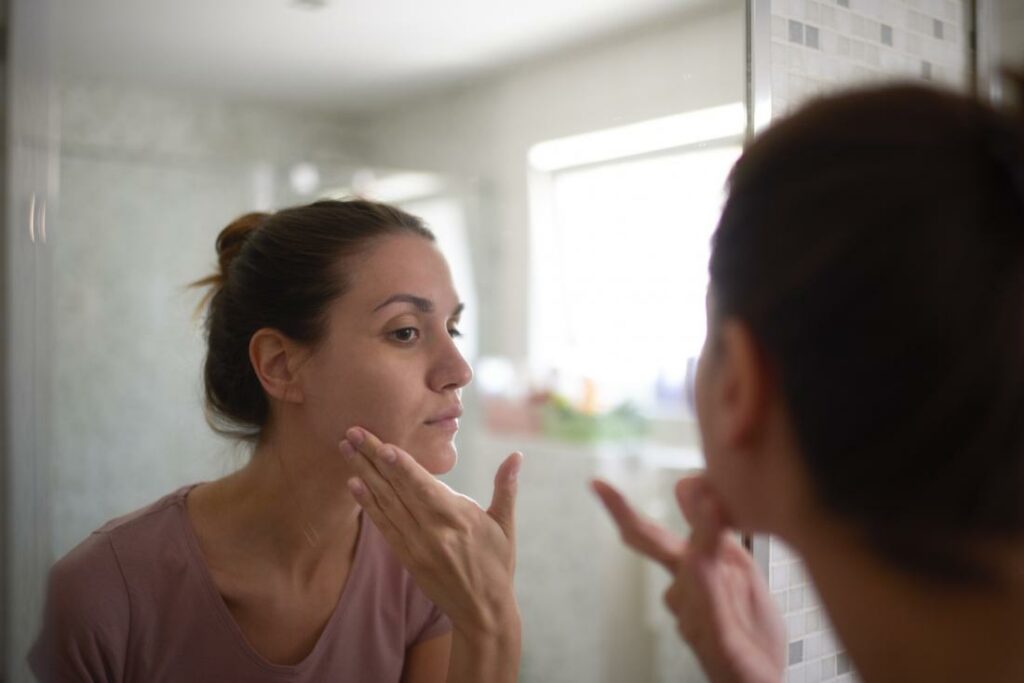Do you constantly compare yourself to others, obsess over your appearance, or spend a lot of time in front of the mirror? If so, you may be suffering from body dysmorphia. This is a mental disorder that causes people to have a distorted view of their appearance. Unfortunately, many people do not realize they have it until it has caused serious damage to their mental health. In this blog post, we will discuss the signs of body dysmorphia and how to get help if you or someone you love is suffering from it.
Contents
- 1 What Is Body Dysmorphia?
- 2 Signs of Body Dysmorphia
- 2.1 Constantly talking about their appearance
- 2.2 Avoiding social situations
- 2.3 Spending hours in front of the mirror
- 2.4 Wearing excessive amounts of makeup or clothing
- 2.5 Constant dieting or exercising
- 2.6 Feeling hopeless or depressed
- 2.7 Constant comparison to others
- 2.8 Feeling anxious or stressed
- 2.9 Making drastic changes to their appearance
- 3 Negative Impacts of Signs of Body Dysmorphia
- 4 Treatment For Signs of Body Dysmorphia
- 5 How To Manage Signs of Body Dysmorphia?
- 6 Conclusion
What Is Body Dysmorphia?
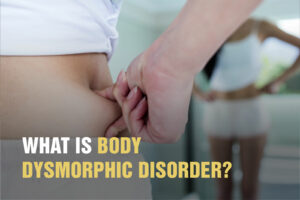 Body dysmorphia is a mental disorder that causes a person to have a distorted view of their body. A person with body dysmorphia may believe that they are fat even when they are thin, or that they are ugly even when they are not. Body dysmorphia can affect both men and women, but it is more common in women.
Body dysmorphia is a mental disorder that causes a person to have a distorted view of their body. A person with body dysmorphia may believe that they are fat even when they are thin, or that they are ugly even when they are not. Body dysmorphia can affect both men and women, but it is more common in women.
Body dysmorphia is a type of anxiety disorder. It can cause a person to become so obsessed with their appearance that they will do anything to change it. This can lead to eating disorders, plastic surgery addiction, and even suicide. There are maybe also many people with body dysmorphia who do not seek help because they are ashamed or embarrassed.
If you think that you or someone you know may have body dysmorphia, it is important to get help. Body dysmorphia is a treatable mental disorder. If left untreated, it can lead to serious and even life-threatening consequences. Body dysmorphia can be hard to deal with, but there is help available. Suffering from body dysmorphia can make you feel alone and like no one understands, but you are not alone. Many people suffer from this disorder, and there is help out there.
If you think that you may have body dysmorphia, talk to your doctor or mental health professional. They can help you get the treatment that you need. Treatment for body dysmorphia may include therapy, medication, or both. With treatment, many people with body dysmorphia can live happy and healthy lives. Sometimes people with body dysmorphia also need to see a doctor or dietitian help them get to a healthy weight.
Signs of Body Dysmorphia
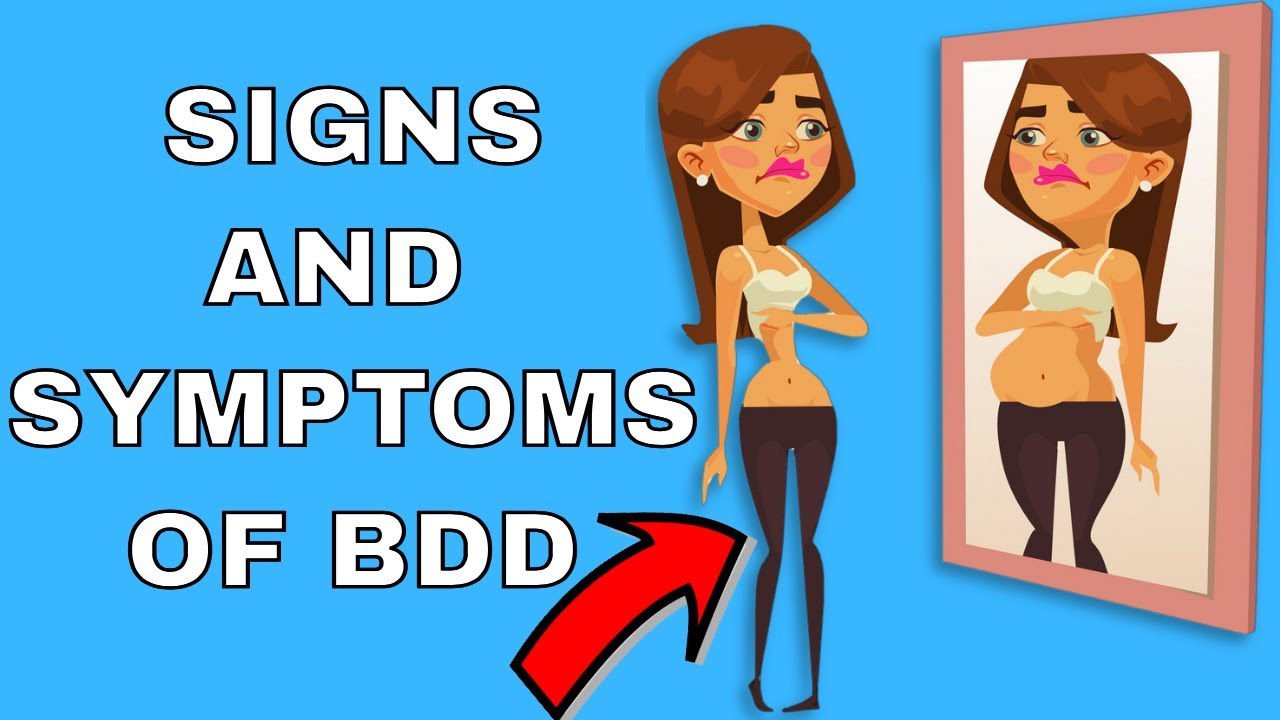
Body dysmorphia is a mental disorder that causes a person to obsess over their appearance. It can cause them to believe that they are ugly or deformed, even when they are not. People with body dysmorphia may avoid social situations, wear excessive amounts of makeup or clothing, and spend hours looking in the mirror. If you think you or someone you know may be suffering from body dysmorphia, look for the following signs:
Constantly talking about their appearance
When someone is suffering from body dysmorphia, they may constantly talk about their appearance. They may say things like “I’m so ugly,” or “I hate my nose/stomach/legs.” Sometimes there are also physical signs, such as picking at their skin or hair.
People with body dysmorphia often avoid social situations because they are afraid that others will see them as they see themselves – ugly or deformed. They may miss work, school, or important events because they cannot bear to be around people.
Spending hours in front of the mirror
Another sign of body dysmorphia is spending hours in front of the mirror. People with this disorder may spend hours looking at themselves, trying to find flaws that no one else can see. Sometimes they will even pick at their skin or pull out their hair in an attempt to fix what they perceive as problems.
Wearing excessive amounts of makeup or clothing
People with body dysmorphia may try to cover up their perceived flaws by wearing excessive amounts of makeup or clothing. They may wear layers of clothes even in warm weather, or they may only leave the house in full makeup.
Constant dieting or exercising
People with body dysmorphia are often fixated on their weight. They may diet excessively or exercise obsessively in an attempt to lose weight or change their appearance. Sometimes this can lead to dangerous behaviors, such as starving themselves or using drugs to lose weight.
Feeling hopeless or depressed
Body dysmorphia can be a very debilitating disorder. It can cause people to feel hopeless and depressed. They may have trouble functioning in their everyday lives. If you think you or someone you know may be suffering from body dysmorphia, it is important to seek help from a mental health professional. Body dysmorphia is a treatable disorder, but left untreated it can lead to serious problems, such as depression, anxiety, and even suicide.
Constant comparison to others
People with body dysmorphia are constantly comparing themselves to others. They may believe that everyone else is more attractive than they are. This can lead to feelings of envy and jealousy. Sometimes there can also be physical signs, such as staring at someone else’s body or comparing their own body to others.
Feeling anxious or stressed
Body dysmorphia can cause a lot of anxiety and stress. People with this disorder may feel like they are never good enough. They may also worry that people are constantly judging them. This can lead to panic attacks and other anxiety disorders.
Making drastic changes to their appearance
People with body dysmorphia may make drastic changes to their appearance, such as getting plastic surgery or tattoos. They may believe that these changes will make them more attractive. However, often these changes do not help and can make the person’s appearance worse.
These are some of the signs of body dysmorphia. If you or someone you know is exhibiting these signs, it is important to seek help from a mental health professional. Body dysmorphia is a treatable disorder, but left untreated it can lead to serious problems.
Negative Impacts of Signs of Body Dysmorphia

Signs of body dysmorphia can hurt many areas of your life. If you think you might be suffering from body dysmorphia, it is important to seek professional help. Body dysmorphia can lead to:
Isolation
Isolation is one of the main negative impacts of having body dysmorphia as individuals may avoid social situations. This may happen due to the person feeling embarrassed about their appearance or feeling that others will judge them. Sometimes there may be also a fear of not being able to control what other people think about them. Isolation can lead to feelings of loneliness and depression.
Depression
Depression is another common negative impact of having body dysmorphia. This may be due to the person feeling unhappy with their appearance and as a result, having low self-esteem. Depression can also be caused by the isolation that comes with body dysmorphia as individuals may avoid social situations. Sometimes there can also be a fear of not being able to control what other people think about them.
Anxiety
Anxiety is another common negative impact of having body dysmorphia. This may be due to the person feeling anxious about their appearance and as a result, having low self-esteem. Anxiety can also be caused by the isolation that comes with body dysmorphia as individuals may avoid social situations. Sometimes there can also be a fear of not being able to control what other people think about them.
Low self-esteem
Another common negative impact of having body dysmorphia is low self-esteem. This is because individuals often fixate on perceived flaws and believe that they are not good enough. This can lead to depression and anxiety. Sometimes there can also be many comparisons with others which can make the individual feel worse about themselves.
Eating disorders
An eating disorder is another serious negative impact of having body dysmorphia. This is because individuals often become fixated on their weight and may see themselves as overweight even when they are not. This can lead to dangerous behaviors such as crash dieting, overexercising, and purging. Eating disorders can have serious consequences such as organ damage, electrolyte imbalance, and even death. If you or someone you know has an eating disorder, it is important to seek professional help immediately.
Substance abuse problems
Another negative impact of having body dysmorphia is that individuals may turn to substance abuse to cope with their feelings. This is because substances can provide temporary relief from the negative thoughts and emotions associated with body dysmorphia. However, substance abuse can lead to addiction and other serious problems such as financial troubles, relationship problems, and legal trouble.
Troubled Relationships
Sometimes there are also strained relationships with friends, family, or significant others. This is because people with body dysmorphia often avoid social situations and withdraw from the people they care about. When they are around others, they may be obsessively preoccupied with their appearance and how they are being perceived. They may also pick apart their appearance in front of other people or ask for reassurance about their looks constantly. These behaviors can be extremely off-putting and make it difficult to sustain close relationships. If you notice that someone you love is withdrawing from social activities or seems more obsessed with their appearance than usual, it could be a sign that they are suffering from body dysmorphic disorder.
Poor Work or School Performance
Sometimes, people with body dysmorphia will avoid work or school altogether because they feel too self-conscious or anxious about their appearance. This can also be a negative impact of body dysmorphia on relationships. If you or a loved one is missing work or school, it may be due to body dysmorphia. Sometimes there can also be a decline in work or school performance as a result of body dysmorphia. This is because people who are fixated on their appearance may have difficulty concentrating on anything else. If you notice that someone’s work or school performance is slipping, it could be a negative impact that they are suffering from body dysmorphic disorder.
Treatment For Signs of Body Dysmorphia
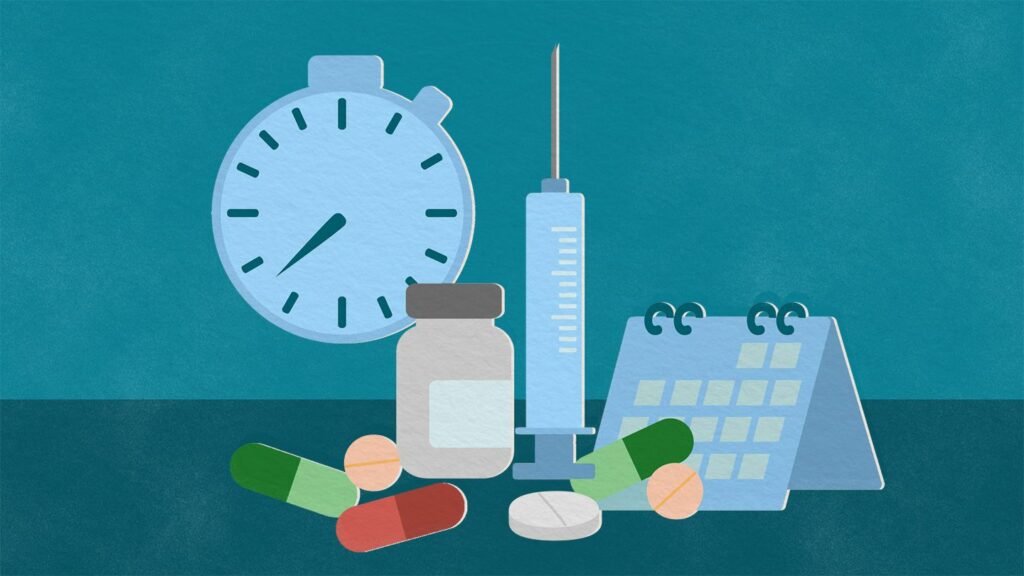
There are many ways to treat the signs of body dysmorphia. Some people may need medication to help with the anxiety and depression that can come with this disorder. Others may need therapy to help them learn how to cope with their thoughts and feelings.
Some of these methods are:
Medications
Medications are one way to help treat the symptoms of body dysmorphic disorder. There are many different types of medications that can be used to treat this disorder. Some of these medications include:
Selective Serotonin Reuptake Inhibitors (SSRIs)
SSRIs are a type of antidepressant that can be used to treat body dysmorphia. While they are not specifically approved by the FDA to treat this disorder, they can be effective in reducing symptoms. Common side effects of SSRIs include nausea, diarrhea, dry mouth, drowsiness, and headache. If you or a loved one is taking an SSRI and experiences any of these side effects, it is important to speak with a doctor about adjusting the dosage or switching to another medication.
SNRIs
SNRIs are a class of antidepressants that affect both norepinephrine and serotonin. These neurotransmitters are important for mood regulation. SNRIs can increase alertness and energy levels, as well as improve mood. SNRIs are often used to treat body dysmorphia because they can help to correct the chemical imbalance in the brain that is thought to be responsible for the disorder.
Therapy
Therapy is one of the most effective methods for treating body dysmorphia. It can help you understand your thoughts and feelings about your body, and develop new ways of thinking about and relating to your body. Therapy can also help you learn how to cope with anxiety, depression, and other emotions that may be associated with body dysmorphia.
Some of these therapy types are:
Cognitive Behavioral Therapy (CBT)
CBT is a type of therapy that focuses on helping you change the way you think about your body and yourself. CBT can help you learn to recognize and challenge the negative thoughts and beliefs that contribute to body dysmorphia. Through CBT, one can also learn healthy coping and problem-solving skills.
Dialectical Behavior Therapy (DBT)
DBT is a type of therapy that focuses on helping you manage your emotions. DBT can help you learn how to deal with difficult situations more positively, and how to cope with the intense emotions that may be associated with body dysmorphia. Through the working of DBT, one can develop a greater sense of self-acceptance.
Psychodynamic Therapy
Psychodynamic therapy focuses on helping you understand the unconscious thoughts and feelings that may be contributing to your body dysmorphia. This type of therapy can help you learn more about yourself and develop healthier ways of thinking and relating to your body. In psychodynamic therapy, the therapist and client work together to explore past experiences and emotions that may be affecting your current thoughts and feelings about your body.
Group Therapy
Group therapy can be a helpful supplement to individual therapy. In group therapy, you will meet with other people who are also struggling with body dysmorphia. This can provide you with support and encouragement from others who understand what you are going through. Group therapy can also help you learn new coping skills and ways of thinking about your body from others in the group.
Family Therapy
Family therapy can be helpful if body dysmorphia is impacting your relationships with family members. Also, Family therapy can help improve communication within the family and help family members understand and support one another. Through family therapy, you can learn how to deal with difficult emotions more positively, and develop a stronger support system.
Art Therapy
Art therapy is a type of therapy that uses art as a means of expression. Also, Art therapy can help explore thoughts and feelings about your body that may be difficult to put into words. Art therapy can also help you develop new perspectives on your body and yourself. Through art therapy, you can learn to express yourself in a creative and supportive environment. It also can help build self-esteem and confidence.
Self-Care Activities
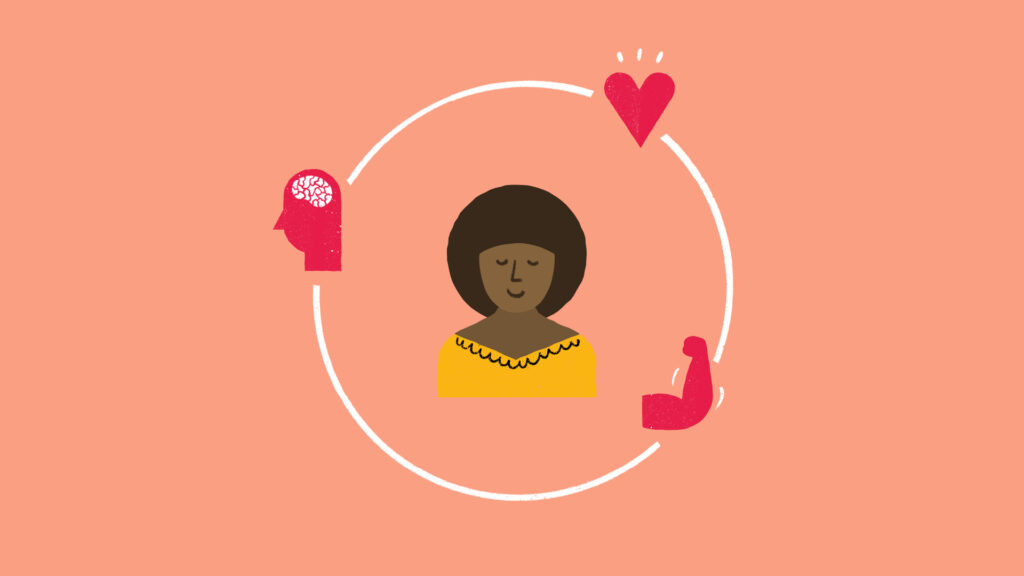
There are many things you can do to help ease the symptoms of body dysmorphia. Here are a few self-care tips:
Practicing Relaxation Techniques
One of the main goals of relaxation techniques is to help you focus on the present moment and let go of worries about the past or future. Relaxation techniques can help you calm your mind and ease anxiety, tension, and stress. Some relaxation techniques that may be helpful include:
- Progressive muscle relaxation
- Deep breathing
- Meditation
- Yoga
- Tai chi
Exercising Regularly
Regular exercise can help improve your mood, increase energy levels, and reduce stress. Exercise can also help you sleep better and feel more confident about your body. When choosing an exercise program, it is important to find one that is enjoyable and feels manageable. Start with small goals and gradually increase the amount of time you exercise each week. Sometimes there may also be other people in your life that you can exercise with, such as a friend or family member.
Eating a Healthy Diet
Eating a healthy diet is important for everyone, but it can be especially difficult for someone with body dysmorphia. The disorder can cause people to become fixated on the idea that they are overweight, even if they are not. This fixation can lead to unhealthy eating habits and an obsession with food. If you or a loved one is exhibiting signs of disordered eating, it is important to seek help from a professional. It can also make it a challenge to be in social situations, as the person may feel like they are being judged for their appearance.
Limiting Alcohol and Drug Use
Alcohol and drugs can worsen symptoms of anxiety and depression. They can also interfere with sleep, which can make symptoms worse. If you struggle with alcohol or drug use, it is important to get help. Treatment can help you learn healthy coping skills and manage your symptoms. Sometimes limiting usage or abstaining from drinking or using drugs altogether is necessary to improve your mental health.
Avoiding Caffeine
Avoiding caffeine is also one of the tips for self-care for people with body dysmorphia. Caffeine can make anxiety worse and trigger panic attacks. If you struggle with anxiety, it is important to limit your caffeine intake or avoid it altogether. There may also be many other benefits to avoiding caffeine, such as improved sleep and better concentration.
Getting Enough Sleep
Getting enough sleep is crucial for managing body dysmorphia. Lack of sleep can worsen symptoms of anxiety and depression. It can also interfere with concentration and decision-making skills. It can also make a person more likely to act impulsively. If you struggle with sleep, there are a few things you can do to improve your sleep habits. Try to go to bed and wake up at the same time each day. Avoid caffeine before bed and create a relaxing bedtime routine. You may also want to talk to your doctor about medications or other treatment options for insomnia.
Support Groups

Another way to get help for body dysmorphia is to join a support group. This can be done in person or online. In-person groups will likely have meetings that you attend regularly. These groups provide support and allow you to share your experiences with others who understand what you are going through. Online groups may not meet in person, but they can still provide support and allow you to connect with others who suffer from body dysmorphia.
There are many different types of treatment for body dysmorphia, so it is important to find one that works best for you. If you are struggling with this disorder, please know that there is help available and that you are not alone.
How To Manage Signs of Body Dysmorphia?
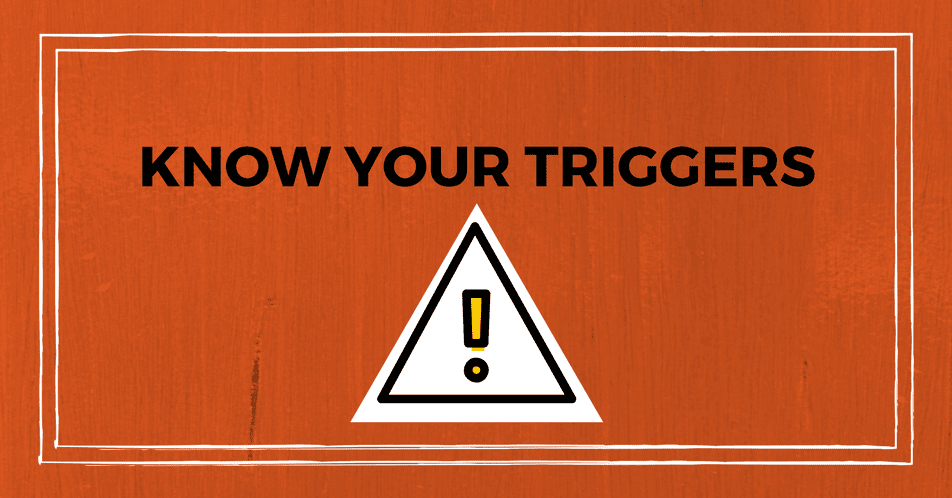
Managing signs of body dysmorphia can be difficult. The first step is to seek professional help. A therapist can help you understand your thoughts and feelings about your body. They can also provide you with tools to manage your symptoms.
Some of these tips to manage the signs of body dysmorphia may also be helpful:
Identifying Triggers
Sometimes certain things can trigger your body dysmorphia. It is important to identify these triggers so that you can avoid them. There can also be many different triggers, so it is important to be aware of what they are for you.
Challenging Negative Thoughts
One way to manage body dysmorphia is to challenge the negative thoughts that you have about your body. This can be difficult, but it is important to remember that these thoughts are not accurate. You can start by writing down the negative thoughts that you have about your body and then challenging them. For example, if you think “I am so fat,” you can write down why this isn’t true.
Building a Support System
It can be helpful to build a support system of people who understand what you are going through. These people can provide you with emotional support and help you to stay on track with your treatment. These also don’t have to be people who suffer from body dysmorphia, but rather just people who are supportive and understand your struggle.
Practicing Self-Care
It is important to practice self-care when you are managing body dysmorphia. This can include things like exercise, eating a balanced diet, and getting enough sleep. Taking care of yourself will help you to feel better both physically and mentally.
Surrounding Yourself with Positive Messages
Another way to manage body dysmorphia is to surround yourself with positive messages. This can include things like positive affirmations, quotes, or even songs. When you are feeling down about your body, these positive messages can help to remind you that you are not alone and that there is hope.
Seeking Professional Help
If you are struggling to manage body dysmorphia on your own, it is important to seek professional help. A therapist can provide you with the tools and support that you need to recover. They can also help you to understand your thoughts and feelings about your body more objectively.
Keeping these tips in mind can help you to better manage the signs of body dysmorphia. If you are struggling to cope, it is important to seek professional help. Recovery is possible with the right treatment and support.
Conclusion
Body dysmorphia is a mental health disorder that can have devastating consequences. If you or someone you love is struggling with body dysmorphia, it’s important to seek professional help. With treatment, people with body dysmorphia can learn to manage their symptoms and live full, healthy lives.
If you think you may have body dysmorphia, talk to your doctor or mental health professional. They can help you get the treatment you need. There can also be many helpful resources available online and through support groups. Remember, you are not alone in this. With help, you can overcome body dysmorphia and live a happy, healthy life.
Your mental health — Your psychological, emotional, and social well-being — has an impact on every aspect of your life. Positive mental health essentially allows you to effectively deal with life’s everyday challenges.
At TherapyMantra, we have a team of therapists who provide affordable online therapy to assist you with issues such as depression, anxiety, stress, workplace Issues, addiction, relationship, OCD, LGBTQ, and PTSD. You can book a free therapy or download our free OCD treatment app on Android or iOS.
